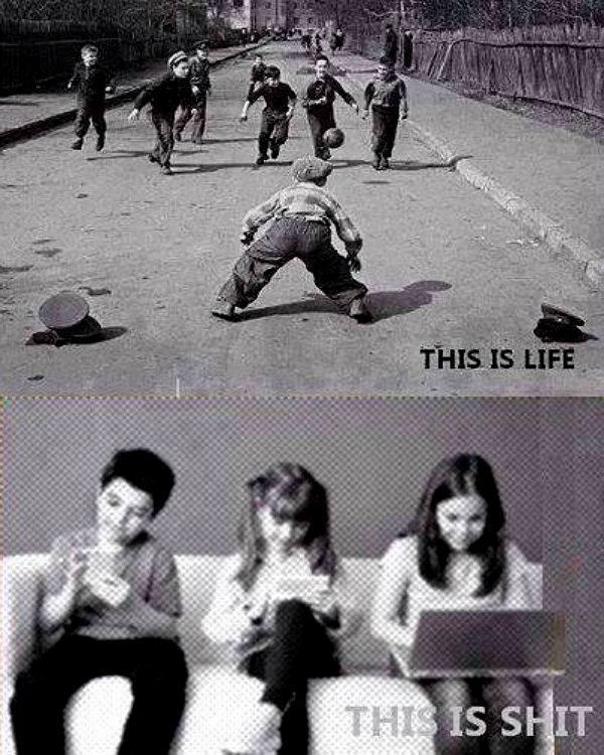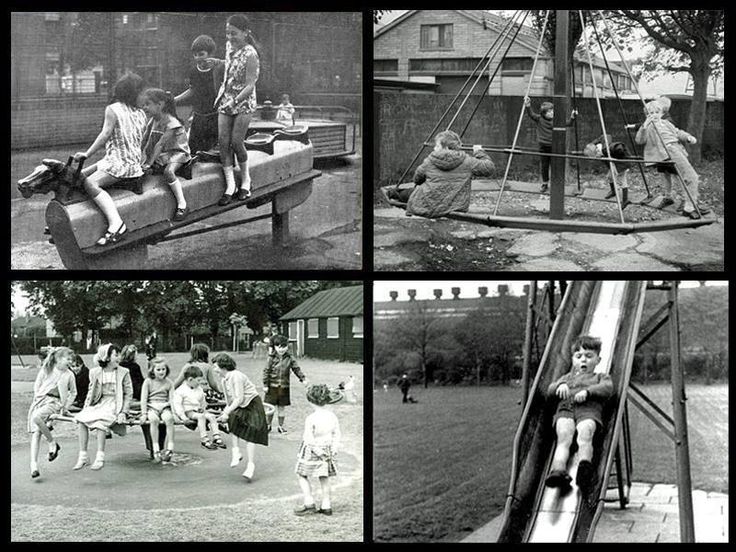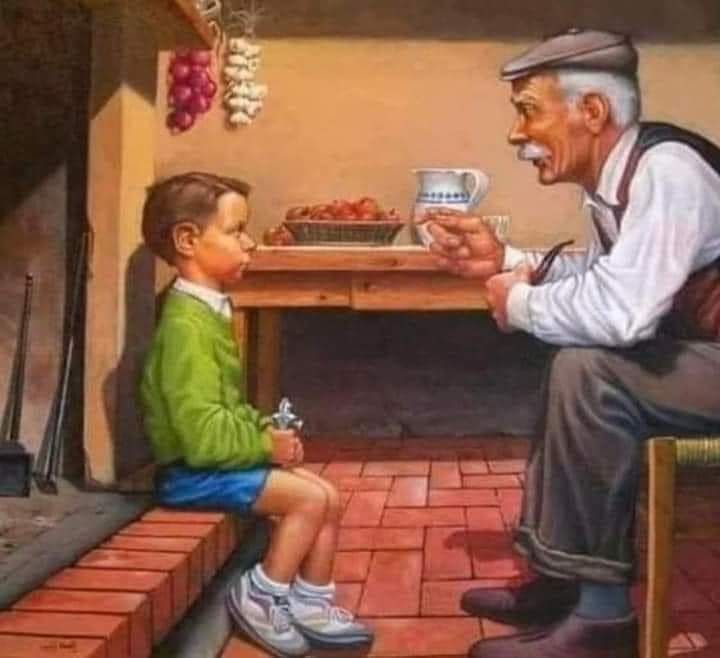If there’s one thing I love to hate-read more than anti-smartphone moral panics (see some previous examples), it’s anti-tech memes. They distill the moral panic clearly, without much chance to obfuscate.
They also get shared a lot. Recently I saw someone share an article called 27 powerful images that sum up how smartphones are ruining our lives. There are loads of almost identical articles, eg. These 40 Cartoons Perfectly Illustrate How Smartphones Have Taken Over Our Lives, These 30+ Cartoons Illustrate How Smartphones Are The Death Of Conversation and These 19 Cartoons Nailed Our Smart Phone Addiction, And It’s Kind of Embarrassing. (All links have been filtered through donotlink.com.) They’re all super-ironic since they’re railing against technology as a way to generate spammy clickbaity content.
Here’s a selection of some of these images. (I tried to credit the original source where I could but these images get recycled so much it’s next to impossible. If you have a source for any of these or are the cartoonist please let me know!)

First, there’s the irony that they had to compare a real photo (of Soviet origin?) with a stock (ie. fake) photo. Then there’s the rosy view of the past the meme requires. Of course these childhood outdoor games can’t possibly involve bullying, violence or exclusion. Of course they’re available to everyone because disabilities don’t exist. Similarly, the kids in the second picture must be zombies. They can’t be 7 year old authors or kids using technology to reach out for help.

Kids playing in 1984 (children playing in park), kids playing in 2012 (same park but they’re all on benches tapping on smartphones)
Another idyllic past, another anti-social present. Does it matter that anecdotally I haven’t found kids to be behaving like the 2012 panel? They certainly are more likely to use smartphones to (say) take photos while they play. It doesn’t mean kids aren’t more sedentary now than decades ago, but smartphones are just part of the story. A recommended research area is the free range kids movement.

Grandpa, tell us what life was like before everyone had a smartphone/Well kids, it was a much simpler time. Whether at home, work, the park, on the bus or on the train, people conversed with one another happily/We put time and energy into building lasting relationships with those we called friends/We let our minds wander and our imaginations roam free! We were content to just be/Children are distracted by smartphones
I’ve seen good cartoons from the Doghouse Diaries but unfortunately this is another version of the previous cartoon. It’s shameless in how obviously false its pining for a non-existent past is. If the cartoon’s point is ironic (that no matter how idylically grandpa paints the past, the kids don’t buy it), it’s still really open to misinterpretation. Did people really love to talk to strangers on packed public transport? The history and sociology of western urbanisation says otherwise. I call bullshit on that, and the condescending “those we call friends”.
Child in playground with soccer ball, confused and dejected because all around are kids on park benches using smartphones.
This one really tugs at the heart-strings on the social isolation. And sure, in this scenario it would be terrible. The interesting question is about how many of these scenarios exist vs how many times has technology helped someone be less isolated? The difference is kinda important, especially when you come back to to issues like ableism.
Man sitting on park bench, tweeting on his phone; a woman (presumably his romantic partner) looks up at a tweeting bird
Oh I see the name of a popular website is the same as a feature of the “natural” world, how iconic, CONDESCENDING SMIRK. The bird here is probably as much a product of humanity’s effect on the environment as Twitter. Taking the cartoon at face value requires us to consider Twitter as “trivial” compared to paying attention to the “meaningful” chatter of a bird. It would be too condescending for me to try list the benefits of Twitter at its best. But if a man sends 12 tweets while his partner is feeling lonely beside him, shitting on Twitter is unlikely to help their relationship.
Holiday pics before smartphones (people having fun), after smartphones (POV shots of people’s legs since presumably they’re lying around using their phones)
If you look at actual holiday pictures (on social media GASP), you’ll know this is just false. There’s just no reason to think people’s holidays have gotten more passive as a result of smartphones. If they are more passive, a better reason might be because people are working longer hours and need to unwind more. For actual travel photos, people are using smartphones to document active engagement with the world.
Before smartphones: Friends having dinner and talking. How old is Barbra Streisand? I think she’s 71. Really? Wow. Who’s Barbra Streisand. After smartphones: Friends havving dinner and on the phones, not talking about Barbra Streisand.
Ok, I liked this one. It is not true in the slightest that phones have ruined dinner parties but if you’re making a cartoon about smartphones, at least make it funny.
Jesus comes out of the cave and his disciples are trying to take a photo with smartphones.
No! If the disciples see Jesus resurrected, they should be somber and proper. They definitely shouldn’t have the GALL to document what they think is the greatest event in human history. And that woman, she’s posting about it! If anyone actually witnesses anything supernatural, spreading the word would just prove how superficial they are. Or something.
Before you take me away, I just want to update my profile picture (says man taking selfie with Death)
We have another civilisational collapse here, because apparently only people whose lives have been ruined by smartphones would want a selfie with Death before dying. Interestingly, the same smarmy rules that say “phones are bad and superficial” are also unlikely to be open about death, leading to all sorts of problems. If there’s one current change from social media that we underestimate, I think it’s the way it’s forcing communities where death is taboo to see, discuss and react to it more openly.
People nowadays: someone is drowning and they’re all standing around getting the footage on their smartphones.
If you’ve read some of my other posts, you’ll know I can’t be accused of being overly optimistic about humans. So it’s a big deal that think this cartoon is a vicious libel on humanity. The bystander effect is real, although the case of Kitty Genovese by which you might know it is largely false. But there’s absolutely no reason to think that it’s somehow on the rise, or that the desire to document catastrophes. If anything, it’s the ubiquity of smartphones that’s finally contributing to some pushback in the mainstream media about say the shooting spree that US cops are on against black people. If this turns into actual systemic change, we should give a lot of the credit to the “bystanders on their smartphones”.
Some memes do push back against the moral panic about technology. Here’s a common one, usually posted with a message like “All this technology is making us antisocial”:
Commuters in 1960s on the bus, all reading their newspapers
There’s an interesting post about this photo: Stop Sharing This Photo of Antisocial Newspaper Readers. It makes some good points about how phones and the internet are radically changing culture in a way newspapers never did. Rather than accessing a common piece of civic information, we view highly personalised and Balkanised streams. And this is definitely an interesting phenomenon that deserves to be studied and discussed. But to me, sharing this photo is pushback against the idea that it’s public transport that’s somehow the emblem of how “phones are ruining our lives”. A lot of anti-phone rage is dedicated to the supposed zombies staring at their screens on public transport and the photo shows how ridiculous the idea of “good old days when when strangers would chat on the bus” is.
This cartoon makes the point even better.
If this is what you’re seeing (people on transport mindlessly glued to devices) you aren’t seing enough (same cartoon but from the POV of the people with the devices showing they’re all lit up with loved ones)
Finally not a cartoon but this poem by B.E. Fitzgerald shows the problem with the anti-phone memes really well. Here’s the start, I recommend reading the rest on her site.
I swear to every heaven ever imagined,
if I hear one more dead-eyed hipster
tell me that art is dead, I will personally summon Shakespeare
from the grave so he can tell them every reason
why he wishes he were born in a time
he could have a damn Gmail account…continue here




0 Comments